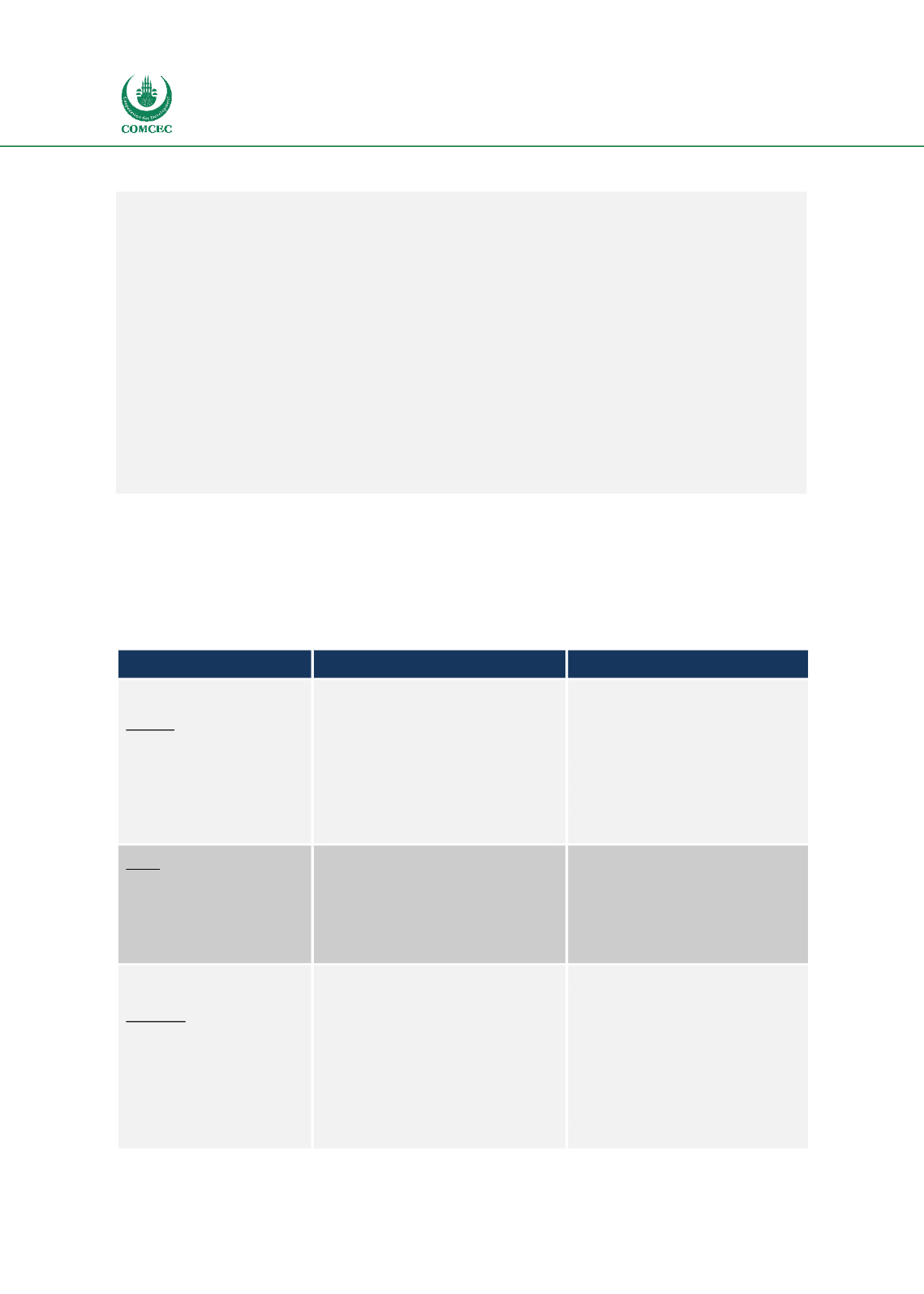

Special Economic Zones in the OIC Region:
Learning from Experience
50
Box 14 - Dubai Free Zones Council – Coordinated Approach to Incentives and Policies
4.2.3
Incentives
There are a range of incentives offered by the different zones for firms choosing to locate within
the zones. A comparative matrix of fiscal and non-fiscal incentives is presented below i
n Table 4-3.Table 4-3 - Comparative Matrix of Incentives within Selected OIC Member State SEZs
Zones
Fiscal Incentives
Non-fiscal Incentives
Bahrain
Bahrain
International
Investment Park
North Sitra Industrial Estate
0% corporation tax (with a 10 year
guarantee)
Duty free access to all GCC markets
Exemption from import duties on raw
materials and equipment
Duty free imports of raw materials and
equipment for manufacturing
100% foreign ownership
100% repatriation of capital
No recruitment restrictions
No minimum capital required
Egypt
Alexandria Public FTZ
Nasr City Public Free Zone
Suez Trade Free Zone
5% income tax vs 10-20% outside SEZ
10% unified income tax vs 20% outside
SEZ
Duty free import of capital equipment, raw
materials and intermediate goods
Accelerated customs service within SEZ
Access to sales within domestic market
Duty on sales to domestic market will be
assessed on the value of imported inputs
only
Indonesia
Tanjung Api-Api
MBTK
Bitung
Exemptions on corporation tax depending
on scale of investment - from 20%-100%
VAT and Luxury Sales Tax exempt for
certain taxable goods
Exemption from import duties for certain
goods to SEZs
Permission to hire foreign workers in
directorial or managerial roles
Ease in regulations with regards to land
ownership and land acquisition
Granted land rights for those who
already have land
Ease in regulations with regards to
immigration of foreign business people
Dubai Freezone Council
The vision of the Dubai Freezone Council is to support the free zones within Dubai to become the
leading destination for investment globally. The council acts as the primary forum for
coordination of free zone activities including review of legislation and policies that regulate the
zones.
The Freezone Council has developed a comprehensive strategy for the free zones in Dubai and
proposes and reviews policies and rules with regards to enterprise registration. In 2017 the
Council approved a new strategic plan to support the Dubai Plan 2021 and the individual free
zone strategies.
The success of Dubai’s free zone policies is evident in the economic performance of the zones
where it is recorded that approximately 225,000 employees works within approximately 19,000
enterprises within the free zone boundaries.
















